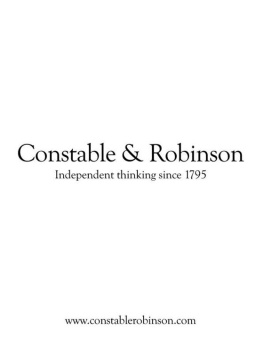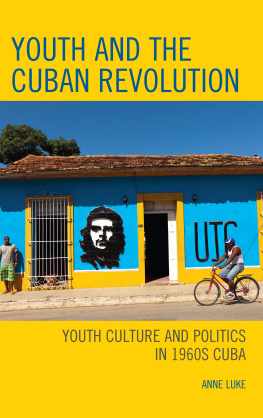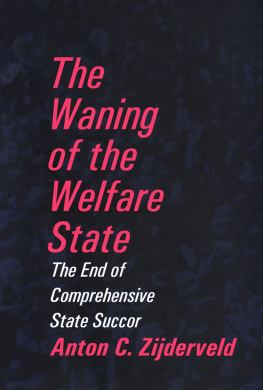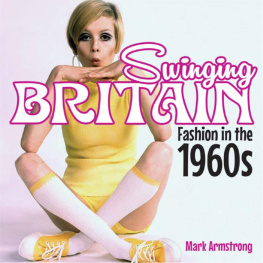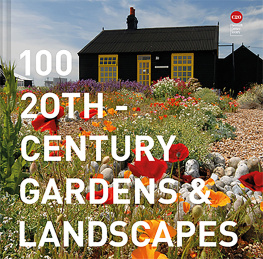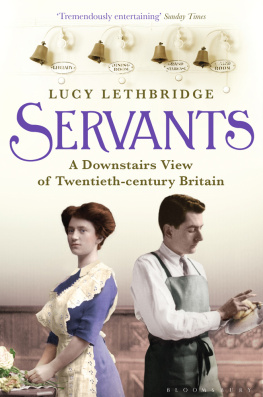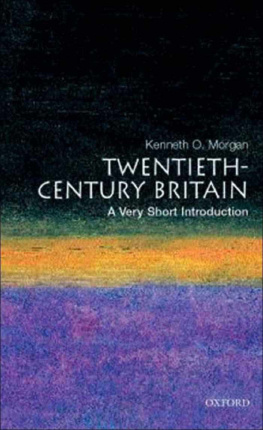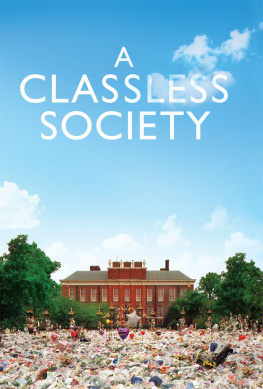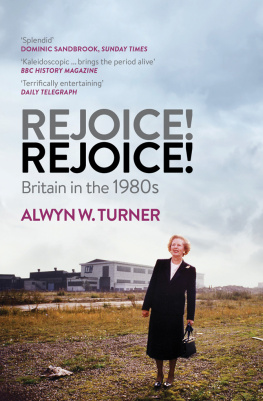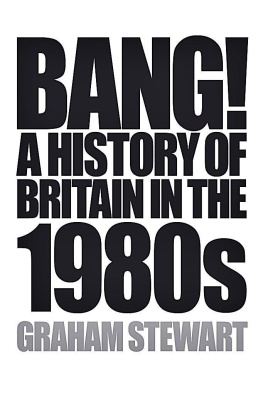Andy McSmith has been a senior writer at the Independent newspaper since April 2007, having previously been a political correspondent on the same paper, and political editor of the Independent on Sunday and chief political correspondent of the Daily Telegraph and Observer . He is the author of four books: biographies of John Smith and Kenneth Clarke, a collection of short biographies called Faces of Labour , and a novel, Innocent in the House . He has also contributed to numerous other books. He lives in London.
NO SUCH THING AS SOCIETY
Andy McSmith
CONSTABLE LONDON
Constable & Robinson Ltd
3 The Lanchesters
162 Fulham Palace Road
London W6 9ER
www.constablerobinson.com
First published in the UK by Constable, an imprint of Constable & Robinson Ltd, 2010
Copyright Andy McSmith, 2010
The right of Andy McSmith to be identified as the author of this work has been asserted by him in accordance with the Copyright, Designs and Patents Act, 1988
All rights reserved. This book is sold subject to the condition that it shall not, by way of trade or otherwise, be lent, re-sold, hired out or otherwise circulated in any form of binding or cover other than that in which it is published and without a similar condition including this condition being imposed on the subsequent purchaser.
A copy of the British Library Cataloguing in Publication Data is available from the British Library
ISBN: 978-1-84901-009-2
Printed and bound in the EU
1 3 5 7 9 10 8 6 4 2
To Nick
who was twelve weeks and five days
old when the 1980s ended
CONTENTS
ACKNOWLEDGEMENTS
T here are numerous people I should thank for help and information, including Sue Dearie, Nigel Farage, Andy Grice, Adrian Hamilton, Lucy Hodges, Richards Ingrams, James Manning, Amol Rajan, Simon Redfern, John Rentoul, Steve Richards, Belinda Salt, Kim Sengupta, Ben Summerskill, Peter Tatchell, Francis Wheen, the compilers of the excellent Margaret Thatcher Foundation website, my agent Andrew Gordon and publisher Andreas Campomar. Any errors, omissions or misjudgements I may have made are, of course, entirely the responsibility of next doors cats.
I NTRODUCTION
T HE D ECADE OF G REED AND L IVE AID
F irst, you had to find a ticket. They could fit 80,000 in Wembley Stadium even with a massive stage at one end, but there were many more than 80,000 kids who would have liked to have been there on 13 July 1985. Some queued all night outside the ticket points. Tickets cost 25, at a time when jobs advertised in the local Jobcentre paid 1.20 an hour or less, making it probably the most expensive live show that many in the crowd had ever attended. Yet no one complained, because there was a promise that 20 out of that 25 would go towards famine relief in Africa, and, more to the point, that the precious square of watermarked paper was a pass to the Greatest Gig in the Galaxy.
The crowd began to pour in as soon as Wembleys gates opened at 10 a.m., two hours before the start. Some people had numbered seats in the stands; the rest staked out patches of ground on the tarpaulin-covered pitch. The more ambitious had brought blankets and cool boxes, thinking it was a good day for a picnic, but they were soon disabused as the crowds piled in, pushing everyone forwards, until they realized that they were going to spend the whole day on their feet, with just about enough space to wave their arms. This was a problem for anyone who was hungry or needed the toilet during that long, hot day. Beating a path out of the crowd was difficult enough; the really tricky part was finding the way back to rejoin friends amid a sea of sun-baked bodies. Stewards sprayed the crowd with hoses. The fans begged them to keep doing it. Light rain in the early evening came as a relief.
At last, there was a roar from the crowd as something stirred on the distant stage. It was noon, and to a loud fanfare that days king and queen of rock n roll had entered the royal box, accompanied by the putative future king and queen of the United Kingdom. First on was Paula Yates, in a jeans suit with close-cropped dyed white hair, carrying her bewildered infant daughter, Fifi Trixibelle. Next, Bob Geldof, scruffy in sweatshirt and jeans jacket. He was hardly still all day, running on adrenaline, rushing from his seat on to the stage to perform with the Boomtown Rats, or to a nearby studio to harangue a live, worldwide television audience, estimated by the BBC at 1.5 billion viewers in 160 countries. At one point in the day, he caused a ripple of disapproval as he swore on live television. He was expected to read out an address to which donations could be sent but exclaimed fuck the address, and instead gave out a telephone number. It did not stop the money coming in. He was seen on camera taking a call from the Sheikh of Kuwait, who gave 1m.
By contrast, the man who filed into the stadium beside him had probably never experienced an adrenaline rush in a lifetime in the public eye. Prince Charles looked older than his thirty-six years and quite out of place, in a dark suit with a folded white handkerchief in the breast pocket, striped pale-blue shirt, tie, and perfectly combed and parted hair that left his large ears in view. He endured the music with a fixed smile, apparently feeling overdressed. Ill have to buy myself a pair of denims, he is alleged to have muttered. (Or perhaps the blame should be directed at the boy-kings of fashion, Duran Duran, Dianas favourite band, or at Joan Collins, the grande dame of the American TV soap Dynasty .) Diana had lived under the publics gaze for more than four years, but still had a way of lowering her head as if she were trying to hide her face behind her short blonde hair. It was already rumoured that the royal marriage was not the happy-ever-after romance that it had first appeared to be. Their contrasting musical tastes were just one aspect of their incompatibility.
After a few bars of the national anthem, the audience went wild with excitement as those old 1960s rockers, Status Quo, strutted on stage looking like a cartoon encapsulation of everything rock n roll is supposed to be to perform Rocking All Over the World. There were no support acts during this unique concert; every band was big enough to top the bill, almost every number performed was a rock classic. Between the acts, there were sombre interludes as the crowd was shown images of hunger and poverty in Africa. It is a tall order to expect adolescents who have paid money and travelled long distances to hear live rock, to sit patiently through an instructive film about hunger and poverty, but on this unusual day even these bleak messages were received in respectful silence, particularly when Drive, by The Cars, which included the line Whos gonna pick you up when you fall down?, was played as the soundtrack to a searing video of a child weakened by hunger and struggling to stand up on thin legs. By nightfall, Live Aid had raised 30m, three times what had been expected.
The worst that could be said about that extraordinary day was that most of the people in the crowd had very little idea of the scale and complexity of Africas problems; 30m was an astonishing sum to raise from one charitable event, but it was nowhere near enough to impact on world affairs. As a comparison, two months after Live Aid, the British government sealed an arms deal with Saudi Arabia that was worth 43 billion, or more than 1,400 Live Aid concerts. The slush fund that the British contractor BAE set aside in Swiss and Panamanian bank accounts to pay commissions, or bribes, to various middlemen involved in the arms deal is thought to have been more than three times the amount raised by Live Aid.
Geldof, to his credit, was quick to realize that if he was to take famine relief seriously he would have to immerse himself in the politics of world trade, because all the energy and goodwill of that summers day hardly made a ripple on Africas problems. Even so, Live Aid was one of the greatest displays of generosity that Britain has ever seen, and it is the single most lasting image of Britain in the 1980s which might seem odd, because the decade is not thought of as a charitable one. In the USA, the 1980s is known as the decade of greed because of the way light regulation and tax changes allowed money to pour into the bank accounts of those who were already wealthy, creating a culture in which the corrupt investor Ivan Boesky told an audience in California that you can be greedy and still feel good about yourself.
Next page
